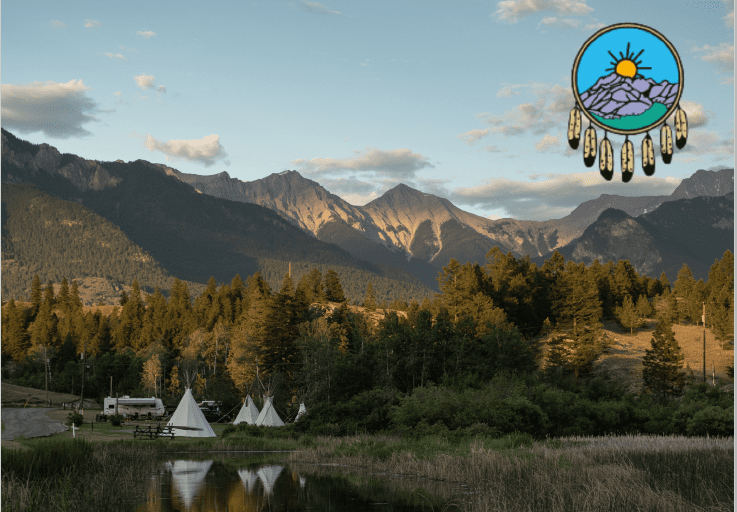For nearly 40 years, the Akisqnuk First Nation (AFN), one of four Indian Bands that make up the Ktunaxa Nation, operated the Lakeshore Resort and Campground off Highway 93/95 in Windermere, BC. It grew to become the largest campground in the Columbia Valley and an important part of the region’s tourism economy, recognized with several awards including outstanding achievement by a community-owned business at the 2015 BC Aboriginal Business Awards.
Prior to the closure, the campground offered space for 54 permanent trailers, 50 campsites, 16 additional sites for overflow and access to the pristine shores of Lake Windermere. During the extended closure, the campground fell into disrepair. Not only did the facility require infrastructure upgrades, a 2017 draft business plan identified approximately $365,000 in potential revenue that was not being captured. The AFN proposed a feasibility study to review the business model and potentially add more services and Indigenous cultural experiences to the campsite environment.
The Economic Trust of the Southern Interior (ETSI-BC) supported the cost of the study through its Building Economic Development Capacity funding stream, recognizing the potential for the Indigenous-owned business to create new jobs, increase revenue and foster community unity and growth. The funding supported the hiring of local economic development consultant Theresa Wood to undertake the study.
“The AFN took advantage of an opportune time to make a plan to make the campground a successful business,” says Laurel Douglas, CEO of ETSI-BC. “This helps the Akisqnuk First Nation and the whole region.”
Campground Re-opens in 2024
After the study was completed in August 2023, the decision was made to reopen the campground for overnight camping in 2024.
The community registration building has been renovated and is now a general store providing essential groceries and other staples. The AFN also funded two new children’s playgrounds and built the new 1,800 square foot open air Legacy Hall, a gathering place for weddings, reunions, and other public and private functions. Eventually the store will sell Indigenous crafts as well as skincare and wellness products made by a band member. The band is also looking at expanding the archaeological path that currently borders the campground, with markers that tell the Ktunaxa history.
Economic Benefits Quickly Realized
The value of the study quickly reflected in economic benefits to the community. Numerous contractors have been hired to complete renovations and construction. Purchasing new inventory for the General Store has initiated collaboration with suppliers and wholesalers, and the introduction of high-speed internet improves the campsite experience while also providing opportunities for surrounding businesses. Campground management software will manage reservations efficiently, and an architectural firm has been contracted to do a two-year masterplan for full development of the campground. A General Manager for the campground has also been hired and two additional groundskeepers will support the existing two.
The study was also the basis for increasing fees for the site’s 76 short-term renters in 2024 and 2025. With additional upgrades, the AFN hopes that up to $70,000 revenue would be realized in the 2024 season alone.
Another outcome of the study was an invitation to apply for $25,000 in funding from Indigenous Tourism BC. “These funds paid for the upgrades to the general store and the installation of the fibre optic network,” says AFN Economic Development Officer, Lisa Cannady. “We don’t think we would have received this additional funding if we hadn’t done the feasibility study. This project gave us the time to take a really good look at the options to run a successful and profitable business, balancing progress with preservation of our Indigenous history and culture.”
The AFN also formed a Limited Partnership to conduct its business activities, maintain the tax advantage held by AFN, and leverage the expertise of experienced individuals to manage the business efficiently, enhancing the First Nation’s economic development capacity, which is the ultimate goal of ETSI-BC.


